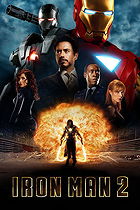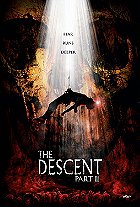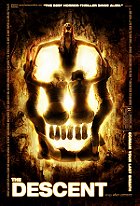In the tradition of films like Peter Weir's Gallipoli, 2010's Beneath Hill 60 is an Australian war movie that portrays Australian soldiers' heroism and nobility, illustrating their crucial role and tremendous sacrifice during World War I under the command of callous British officers. With a screenplay by David Roach, Beneath Hill 60 immortalises a little-known true story from the Western Front about Australia's involvement in the Great War that emphasises courage, loyalty, camaraderie, and sacrifice while depicting the ingenuity of Australian wartime engineers. Instead of an action-packed war picture, director Jeremy Sims (Last Train to Freo) mounts a compelling, claustrophobic experience that primarily takes place in unstable tunnels and muddy trenches, with battlefield carnage occasionally breaking up the tense interactions and tunnel construction. Additionally, instead of another war movie about infantry soldiers, Beneath Hill 60 focuses on the 1st Australian Tunnelling Company - a unit of skilled engineers who dug deep tunnels underneath enemy lines and, in 1916, set off one of the largest explosions in history, a blast killing thousands of German soldiers that was audible in other countries.
An Australian miner, Oliver Woodward (Brendan Cowell) helps the war effort at home by supplying copper, and he falls in love with teenager Marjorie Waddell (Bella Heathcote), a girl who is ten years his junior. With the Great War raging on overseas, Woodward receives constant pressure to enlist and serve his country, and an ideal opportunity presents itself with the formation of the 1st Australian Tunnelling Company. With the Australian Army trusting Woodward to lead the unit, he leaves for the Western Front as a commissioned officer. After Woodward successfully leads a mission to destroy a fortified German position using powerful explosives, his superiors promote him to captain and send him to the trenches at Hill 60 in Belgium. Inspecting the lines upon his arrival, Woodward learns that Canadian and British engineers have been tunnelling and planting thousands of kilograms of ammonium nitrate explosives below the Messines Ridge. Woodward takes over the operation, overseeing the construction of a massive shaft to keep water away from the explosives while also digging diversion tunnels to confuse the German soldiers and keep their operation a secret.
Roach conducted extensive research during the screenwriting process, consulting Woodward's war diaries and sourcing material from Canberra's Australian War Memorial Archives to facilitate a high level of authenticity. Consequently, Beneath Hill 60 rarely sacrifices facts for entertainment, and the film ably captures the attitudes and sensibilities of the era instead of giving the story a contemporary spin. The dialogue carries an engaging lyricism that effortlessly evokes the 1910s, and the script embraces the Australian soldiers' buoyant camaraderie and dry humour. Admirably, the movie does not depict the German soldiers as faceless monsters; instead, Sims portrays their perspective in an unbiased light and highlights how much both sides have in common. However, the film's structure is slightly flawed, as Sims frequently cuts back to scenes of Woodward in Australia before his enlistment to explore his relationship with Marjorie. Although the flashbacks add dimension to Woodward and make it easier to care about him, the scenes are overused and sometimes clunky. Eventually, the flashbacks interrupt the movie's pace and intensity; they feel like homework while we wait for the film to return to the battlefield.
Despite a reported production budget of $6 million, Beneath Hill 60 impresses with its slick and authentic look, boasting the production values of Hollywood films with significantly higher budgets. Everything from the sets to the period-specific props and costumes generates a seamless illusion, and the layered, meticulous sound design further makes us believe we are in the trenches alongside these soldiers during WWI. Sims and the crew pulled off a minor miracle in effectively recreating the trench-laden battlefields of WWI outside of Townsville in Queensland, and the picture's scale never feels compromised by the meagre budget. Hugh Jackman even assisted the production by allowing the team to shoot on a WWI set from 2009's X-Men Origins: Wolverine. Sims marvellously captures the mud, blood, and sweat of trench warfare, while cinematographer Toby Oliver uses claustrophobic, low-light photography to emphasise the feeling of being inside a cramped tunnel.
Additionally, Sims stages several exciting and tense set pieces, particularly when the Australian soldiers cross into No Man's Land at the mercy of enemy machine guns. Beneath Hill 60 is also successful during more light-hearted scenes, such as the Australian soldiers playing a friendly game of rugby against the British in the muddy terrain, and an amusing scene of the soldiers singing after the game concludes. Townsville's Brothers Rugby Union even supplied players to participate in the scene. Meanwhile, the original score by composer Cezary Skubiszewski (Two Hands) is poignant and moving, adding another dimension to the first-rate sound design. However, when the music swells and becomes more emotional, it implies something tragic is about to occur, which renders several moments fairly predictable. (The death of Billy Bacon, played by Mark Coles Smith, is a key example.) Another slight imperfection is the digital effects for the final explosion, which look a tad cartoonish. However, these faults are minor compared to the film's myriad strengths.
Brendan Cowell (2007's Noise) delivers a strong and engaging performance as Captain Oliver Woodward, portraying the soldier as a man of stoic loyalty and awkward emotion. Cowell confidently handles the tricky material, ensuring every line and action is wholly believable. Fortunately, Sims surrounds Cowell with a capable supporting cast of recognisable actors and unknowns. Gyton Grantley, who rose to prominence in TV's Underbelly, is thoroughly convincing as Norman Morris, a sapper under Woodward's command. Newcomer Harrison Gilbertson is also impressive in the role of the young, shellshocked Frank Tiffin, while Steve Le Marquand (2006's Kokoda) makes a terrific impression as Corporal Bill Fraser, the battalion's resident hard-nut. Also joining the cast is Australian comedian Bob Franklin, who shows up in a minor role as an Aussie soldier. The camaraderie among the actors is infectious, with the spirit of these Aussie larrikins adding texture to the senseless death and bloodshed. Rounding out the main cast is Bella Heathcote, who would later become a recognisable international star with several prominent film and television credits. Beneath Hill 60 was Heathcote's second film role, and she's endearing and credible as young Marjorie.
Beneath Hill 60 is a top-notch Australian war picture that effectively delivers traditional genre elements as powerfully as a Hollywood offering. With its strong writing and impressive production values, Beneath Hill 60 has a fighting chance of joining the ranks of Gallipoli and Breaker Morant. It is arguably the best Aussie war film of this generation, and it may contribute to future generations' understanding of the Australian experience in the Great War thanks to the striking attention to historical accuracy.
8.4/10
 Login
Login
 Home
Home 183 Lists
183 Lists 1670 Reviews
1670 Reviews Collections
Collections



 0 comments,
0 comments, 




































